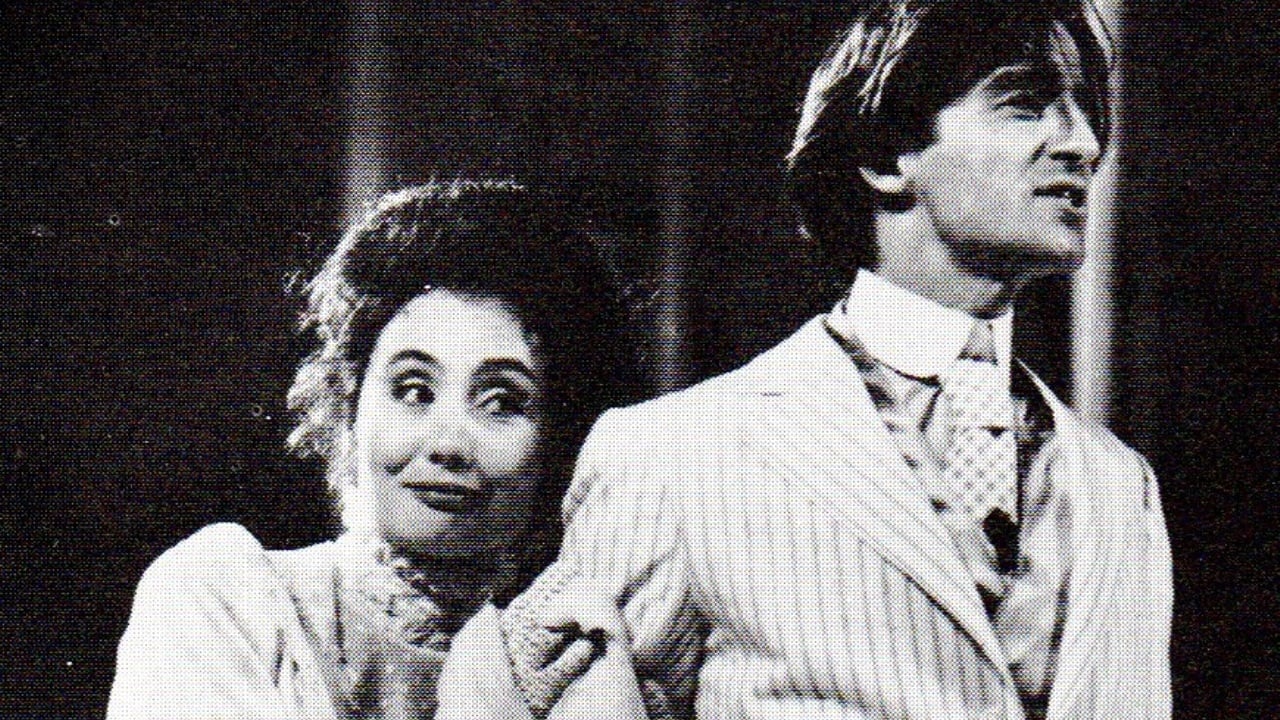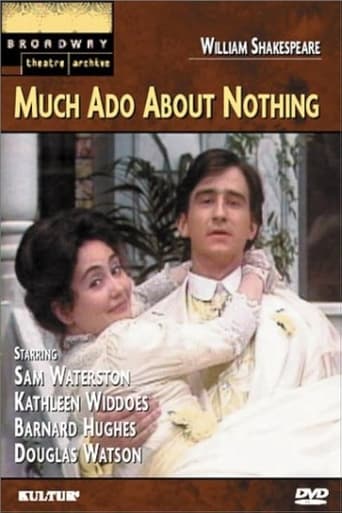

I'll be honest, I haven't seen this in years and didn't know you could even buy a DVD copy (and I'm definitely asking for this for my next birthday!). I first saw this in 1973, on PBS and fell in love with both the play and Sam Waterston (at the time, an unknown minor off- Broadway actor)! I was 17 at the time, LOL.Normally, I'd probably not bother to review something this slight and 40 years old, but I was taken aback by the cruel reviews of this piece on IMDb.....for starters, people are reviewing it as if it were a poorly made FILM. It is not a FILM. It was an off-Broadway Shakespeare production (by the famous Joe Papp, no less) that was such a minor hit in its day (FOUR DECADES AGO), that PBS had it filmed for their well-received series, Theatre In America.This was a WONDERFUL series, back then, that let Midwestern kids like me -- who were not ever going to get to go to NYC to enjoy these productions -- see them filmed for television. (I assume this was done near the end of their run, so as not to cannibalize ticket sales.) They were never, ever intended to be movie versions -- they were quite consciously filmed in a manner to capture how they were as STAGE PLAYS, and done for public television.I saw some wonderful stuff this way, back in the early 70s, including an ingénue Meryl Streep in "Uncommon Women and Others" by Wendy Wasserstein. But my favorite of all these, was "Much Ado About Nothing".It is unfair to compare this to a $30million modern MOVIE, such as the one with Kenneth Branaugh (which is fine, though not remarkable in any way). It simply could have never had the production values or budget of such a film. I would guess it was videotaped by a single cameraman right on the stage! It is more fair to look at this as if it were a rare, treasured chance to see a 1970s Joe Papp production, as if it were captured in a time machine. A production that only a handful of theatre-goers had the privilege of seeing as it was produced. What a cheap shot it is to scorn this lovely production, for not being a big budget Hollywood film!That being said: I still hold this to be one of the most charming adaptations of the play I have ever seen, and I've seen it at least a dozen times on stage, as well as major movie versions. The choice of the early 20th century, post Spanish American War is inspired -- it also places the date as 1898 if any cares - -and the stage version is rich in period detail, men in straw hats and striped blazers, ladies sneaking cigarettes in greenhouses, bicycles and rowboats.A very young Sam Waterston and Kathleen Widdoes really shine in these parts, not the least because the setting removes all the stuffy Elizabethean fussiness, and lets them use American accents, and a natural way of speaking. There is a very excellent supporting cast with Barnard Hughes and Douglass Watson (Watson and Widdoes went on to long careers in the soaps, but were first and foremost stage actors).Someone mentioned F. Murray Abrams, but I don't remember him or see him listed -- must have been a non-speaking walk-on part. Remember -- this was 1972!!!I am delighted this enchanting production was saved on video tape. Please enjoy it for what it is, and the charm and delightful performances, and don't try and compare it to a multi- million dollar film. Indeed, I have found that some Shakespearan plays really do work better on stage (or in simple videotapes of stage productions) than the big budget blockbusters -- that is how they were DESIGNED to be seen. The delicate comedy is often lost on the big screen.Lastly: there are so many thousands of productions (film, stage, school) of every Shakespearean play -- and for four hundred years! -- that you can have MORE than one good or valuable version of each play. It isn't tit for tat; that this is a lovely production doesn't take away from the Branaugh version and vice versa. Each play is capable of being interpreted in MANY different ways, and it is only after seeing many different versions that you can fully appreciate the genius of Shakespeare, that his work is so infinitely adaptable.
... View MorePainful. Painful is the only word to describe this awful rendition of such a fun and interesting Shakespearean play. I gave it a shot but was terribly disappointed and couldn't bare to even finish viewing it. To the person who wrote a novel about how wonderful this twist of Much Ado was, I pity you and your bored brain. May your pretenses about young viewers be lifted without retribution. Please do not even bother with this gut wrenching, disgusting excuse for a performance of an acclaimed Shakespeare drama. You will be forced to induce vomiting and will require a commode close to the television with which you choose to watch this crap because involuntary defecation will take place.
... View MoreAdmittedly I saw this when I was a teen, and haven't seen it since, but my recollection is of a bright, sprightly, and interesting version of Much Ado, set in the time of the Spanish-American war. So maybe this is a good version for those who aren't Shakespeare snobs or so jaded with Shakespeare that most versions fail to satisfy. I remembered Sam Waterston as Benedict for decades when the only other time I saw him on film was as the rather colorless narrator in Great Gatsby, and was happy to see him appear as a major character on Law and Order. Much Ado is my favorite Shakespeare comedy, and I saw an excellent production of it in London the year after this version was shown on TV, so I hardly think it could have been too lacking in overall quality or it wouldn't have held such a place in my memory.
... View MoreWell acted rendition of the bawdy Shakespeare romance-comedy about lovers being united with stand out performances from Hughes, in an excellent turn as bumbling constable Dogberry and Waterston as an aristocratic Benedick. For fans who want something different than the Branagh version.
... View More